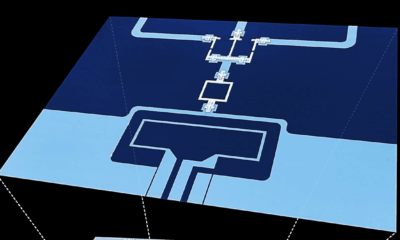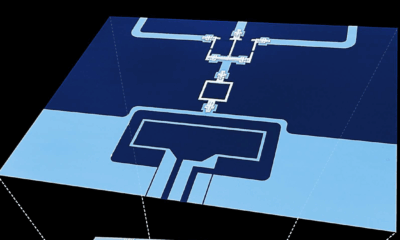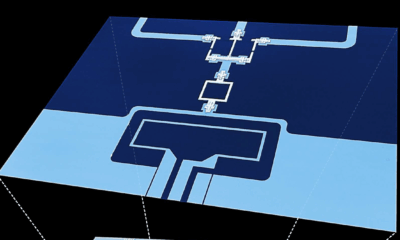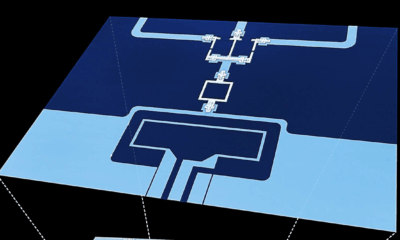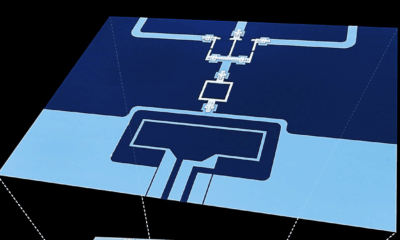Science
Nobel Prize in Physics Honors Pioneers of Quantum Technologies
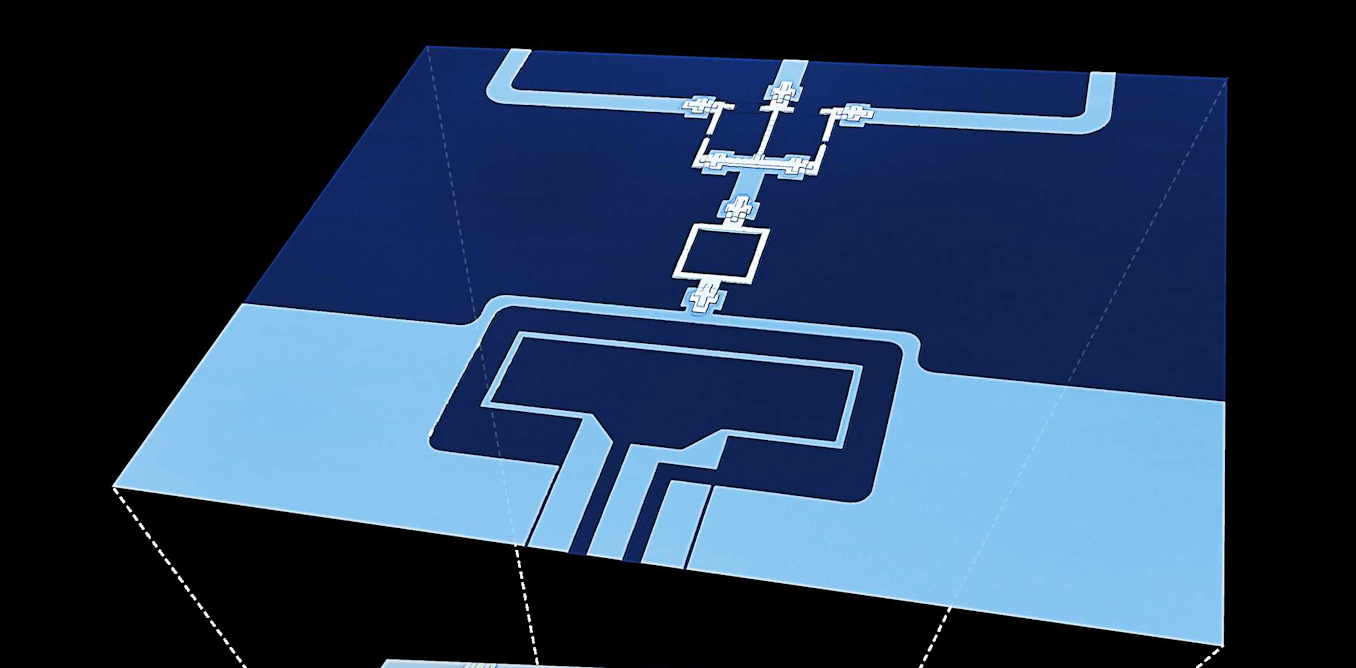
The 2025 Nobel Prize in Physics was awarded to three scientists for their groundbreaking research demonstrating the quantum behavior of superconducting circuits. This discovery has significantly advanced the field of quantum technology, allowing researchers to explore complex problems across various disciplines, including chemistry and cryptography.
The laureates—John Martinis, Michel Devoret, and John Clarke—pioneered the understanding of how large electrical circuits can maintain quantum effects, a finding that has been essential for the development of practical quantum applications. Their work, dating back to the mid-1980s, laid the foundation for what would become a revolution in quantum computing.
Unveiling Quantum Mechanics in Electrical Circuits
In their studies conducted in 1984 and 1985, the researchers utilized circuits made from niobium and lead. When these materials are cooled to just above absolute zero, they transition into a superconducting state, allowing them to conduct electricity without resistance. Their groundbreaking experiments revealed that the voltages and currents within these circuits are governed by quantum mechanics, showcasing quantized energy levels and superpositions of states.
This revelation allowed for the description of superconducting circuits as single quantum particles, a simplification that has proved invaluable in their application for quantum technologies. Such circuits are now widely employed in fundamental quantum physics research, simulating physical systems, and testing high-precision measurement protocols. For instance, the Devoret group recently created an exceptional microwave amplifier based on superconducting technology, which has significant applications in communications and scientific instrumentation.
Superconducting Circuits and Quantum Computing
Superconducting circuits are particularly promising for quantum computing due to their ability to support multiple quantum systems that interact and become entangled. This entanglement enables these systems to function collectively as a single unit, enhancing computational power. Researchers utilize quantum bits, or qubits, which can represent two states simultaneously, a fundamental aspect of quantum computation.
To maintain effectiveness, qubits need to be coherent, controllable, and scalable. The flexibility of superconducting circuits allows researchers to tailor designs for specific qubit behaviors, striking an optimal balance for technological advancement. The larger size of superconducting qubits also makes them easier to manipulate compared to other quantum technologies, such as trapped ions or photons.
Today, academic institutions and private companies are exploring new types of superconducting qubits while working to enhance coherence, control, and scalability. The combination of academic research and engineering efforts is vital for the creation of large-scale quantum processors that can be utilized in practical scenarios.
The contributions of the Nobel laureates extend beyond their initial discoveries. Martinis has led efforts at Google’s quantum processor initiative and now operates his own company. Devoret continues to support quantum advancements at Google, while Clarke, now retired, has significantly influenced the field throughout his career. Their mentorship has been pivotal for many researchers, fostering a new generation in quantum science.
As the field evolves, the legacy of Martinis, Devoret, and Clarke remains a driving force in shaping the future of quantum technology. Their recognition through the Nobel Prize not only honors their past achievements but inspires ongoing efforts in quantum research and application.
-

 World1 week ago
World1 week agoPrivate Funeral Held for Dean Field and His Three Children
-

 Top Stories2 weeks ago
Top Stories2 weeks agoFuneral Planned for Field Siblings After Tragic House Fire
-

 Sports3 months ago
Sports3 months agoNetball New Zealand Stands Down Dame Noeline Taurua for Series
-

 Entertainment3 months ago
Entertainment3 months agoTributes Pour In for Lachlan Rofe, Reality Star, Dead at 47
-

 Entertainment2 months ago
Entertainment2 months agoNew ‘Maverick’ Chaser Joins Beat the Chasers Season Finale
-

 Sports3 months ago
Sports3 months agoSilver Ferns Legend Laura Langman Criticizes Team’s Attitude
-

 Sports1 month ago
Sports1 month agoEli Katoa Rushed to Hospital After Sideline Incident During Match
-

 World2 weeks ago
World2 weeks agoInvestigation Underway in Tragic Sanson House Fire Involving Family
-

 Politics2 months ago
Politics2 months agoNetball NZ Calls for Respect Amid Dame Taurua’s Standoff
-

 Top Stories2 weeks ago
Top Stories2 weeks agoShock and Grief Follow Tragic Family Deaths in New Zealand
-

 Entertainment3 months ago
Entertainment3 months agoKhloe Kardashian Embraces Innovative Stem Cell Therapy in Mexico
-

 World4 months ago
World4 months agoPolice Arrest Multiple Individuals During Funeral for Zain Taikato-Fox



